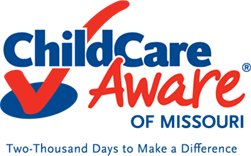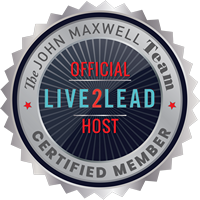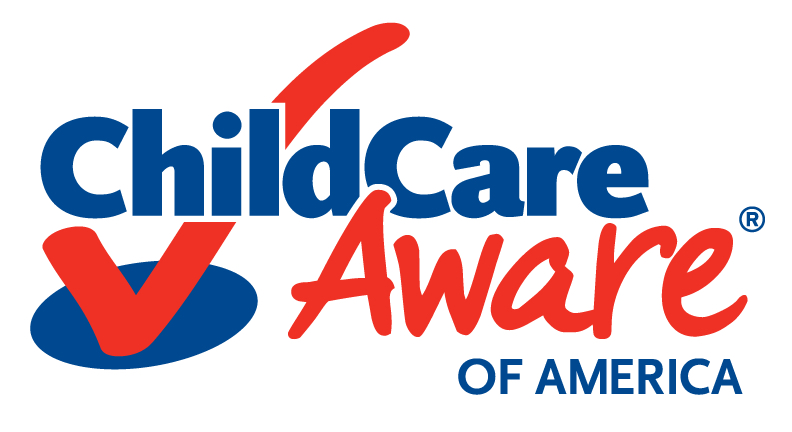Attaining Daycare Center Grants in Missouri
 Are you a parent, teacher, or daycare center owner looking to receive a grant for daycare in Missouri?
Are you a parent, teacher, or daycare center owner looking to receive a grant for daycare in Missouri?
Are you looking to apply for daycare center grants but aren’t sure where to start?
Not to worry! Child Care Aware® of Missouri is here to get you on the right track to obtaining the daycare center grant you need so your children can get the best education possible from an early age.
Applying for and receiving daycare center grants can be a confusing, and oftentimes daunting task. We aim to help you to understand the ins and outs of what receiving grants for daycare entails, in the hopes that you will be more likely to try to receive assistance for you and your family, if it’s needed.
Whether you are a parent, guardian, or an educator looking for more information on how daycare center grants work, this article will guide you through the steps necessary to receive grants for daycare in Missouri through the CCDBG and CCDF.
Daycare Center Grants – Explaining the Child Care and Development Block Grant Act and the Child Care Development Fund
Daycare center grants are funds set aside by the government to help owners of daycare centers pay for the costs associated with running their businesses.
One of the main grants for daycare opportunities in Missouri is the Child Care and Development Block Grant Act, which is a law which authorizes the Child Care and Development Fund program.
To put it simply, The Child Care and Development Block Grant Act (CCDBG) is the law, and the Child Care and Development Fund is the program.
CCDF is administered by states territories and tribes, and outlines how federal funds will be used to provide financial assistance to low-income families for them to access child care at an affordable rate.
States also use CCDF to invest in improving the quality of the teacher workforce and supporting child care programs to achieve higher standards in early childhood education.
CCDF also provides consumer education to parents regarding grants for daycare and the childcare that will fit their child’s needs.
How are Daycare Center Grant Funds Allocated?
In 2016, it was decided that states and territories would be required to outline how they planned to use Child Care and Development Fund money to support child care policies and provide daycare center grants.
States can submit a three-year state plan to the Administration for Children and Families (ACF).
These three-year state plans act as an official application for federal CCDBG funds, outline how states will remain in compliance will all rules and regulations under federal law, and serve as a guide document for longer-term planning, as well as a vehicle for data collection.
It is the development of this plan that gives parents, guardians, caregivers, and teachers an opportunity for collaborating and brainstorming together on how best to utilize the daycare center grant money allocated to them federally. It is this money which will provide for teacher education, grants for daycare, and other initiatives to better their school systems.
Key Sections of the CCDF State Plan Form for Daycare Center Grants
State plans for the allocation of daycare center grants and other federally applicable funds are divided into eight sections that contain various subparts.
Instead of looking at these sections as separate entities, it is recommended that they are looked at as smaller parts of a whole, larger, integrated plan on how to best allocate grants for daycare and other federal funds.
Section 1: Define Leadership and Coordination
This section is where states must identify the logistics of planning and carrying out the CCDF program.
This section will also ask which stakeholders were consulted to create the plan, and the identification of how the maintenance of effort funds are being used.
Plans must include how public-private partnerships are encouraging coordination efforts between Child Care Resource and Referral agencies as well as a description on disaster preparedness efforts.
Section 2: Promote Family Outreach and Consumer Education
States must outline how they will provide outreach to families eligible for grants for daycare, as well as how they plan to assist those families in accessing the high-quality care they deserve.
This section will also outline other financial assistance programs and daycare center grants that families may apply for.
It is here where states will also supply best practices on children’s development and resources on developmental screenings for children.
Section 3: Provide Stable Financial Assistance to Families
States must identify eligibility criteria for daycare center grants, and other child care assistance subsidies and how they plan to increase access for vulnerable children and families, such as those with disabilities or who are currently homeless.
States have quite a bit of flexibility when it comes to establishing a range of policies. These policies include:
- Family income thresholds to receive daycare center grants
- Defining what a family unit is regarding receiving grants for daycare.
- Qualifying activities for eligibility (such as minimum work hours)
- Maximum age limits for daycare center grants
- Family contribution payments or copays due when eligible for grants for daycare.
Section 4: Ensure Equal Access for Low-Income Children
Plans must outline strategies which will be implemented to improve and increase the supply of quality child care services in underserved areas. These plans should also promote parents having a choice in their child’s education and ensure equal access to programs comparable to those of non-CCDF families, with the aid of grants for daycare.
This section will also outline provider pay rates which enable them to meet health, safety, quality, and staffing requirements as outlined under CCDF.
Section 5: Establish Health and Safety Standards and Monitoring
States are required to certify that there are health and safety standards, training, and protocols in place that are appropriate for the provider setting and the age of the children being served.
States must address standards for background checks, child-to-staff ratios, group sizes, and required qualifications and trainings for all child care staff.
Section 6: Recruit and Retain Qualified, Effective Childhood Education Workforce
State plans must describe the training, professional development, and post-secondary education requirements for staff.
Plans must include how the state will strengthen provider business skills that will help expand supply and improve the quality of early learning and development programs.
Section 7: Support Continuous Quality Improvements
Reporting on quality improvement activities and findings that are part of statewide needs assessments is required.
In addition to outlining the quality improvement activities that are in place, states must report on whether they have adopted a quality rating and improvement system in addition to any financial incentives or daycare center grants they offer to improve the quality and supply of infant and toddler care.
Section 8: Ensure Program Integrity and Accountability
In the final section, states must describe which effective internal controls are in place to ensure accountability and integrity while maintaining continuous service. This includes the ways the state plans to address reducing fraud, waste, and abuse, including program violations and administrative errors.
The entire application for CCDF funds for daycare center grants, school enrichment, and the support of low-income families attaining high-quality childcare can be found here.
Eligibility Requirements as per the CCDF Application to Receive Daycare Center Grant Opportunities
Section 3 of the document that we have outlined throughout this article discusses the eligibility criteria of families seeking out grants for daycare or other childcare assistance.
The eligibility for children and families for the year of 2022-2023 to receive grants for daycare are as follows:
- Children must be younger than the age of 13
- Children must reside with a family whose income is less than 85% of the state median income for a family of the same size
- Family’s assets must not exceed $1,000,000
- Children must reside with parent or caregivers who are attending job training or are employed.
- Are a child requiring protective services and resides with parents not described in this section.
These are the basic requirements set by the federal government, but the state or territory does have some room for slight customizations.
Family Contributions to Payments in Conjunction with Grants for Daycare
Even if a family is eligible for a daycare center grant, they may still have some type of payment contribution or copay due to their annual earnings.
This copay that is due in addition to the daycare center grant payment varies based on the size and income of the family, with each family’s contribution calculated to ensure it is not a barrier to those children receiving CCDF daycare center grants.
To help families transition off child care assistance, co-pay amounts may be gradually adjusted for families determined to be eligible under a graduated phase-out of receiving grants for daycare.
Access to Daycare Center Grants for Children with Special Needs
Special priority is given for daycare center grants to children with special needs, in families with extremely low-incomes, or who are experiencing homelessness.
The prioritization of CCDF grants for daycare is not limited to eligibility determination. Other ways to give priority can include the establishment of a waiting list or the ranking of eligible family’s priority order to be served.
Other Important Points to Note About Receiving Grants for Daycare through the CCDF
Though these rules and regulations may seem stringent, there are checks and balances put in place to ensure the continuity of financial assistance going to families in need.
For working families, regardless of changes in income, your CCDF daycare center grants may not be terminated during the minimum 12-month period if a family has an increase in income that exceeds the states income eligibility threshold, but not the federal threshold of 85% of the state’s median income.
Also, financial assistance with daycare center grants may not be terminated prior to the end of the minimum 12-month period if the family experiences a temporary job loss or change in participation in training or educational activity. It is also noted that a temporary change cannot have a set time limit, for example, 60 days.
If Discontinuation of CCDF Funds Does Occur – What You’re Entitled to, and How to Reclaim Your Grants for Daycare
While the option is there for the state to discontinue assistance from a non-temporary loss of work or cessation of attendance at a job training or educational program (also known as the parent’s “eligible activity”) but is not required to discontinue the grants for daycare.
If the decision is made to discontinue to financial assistance, it is required that the family continue to receive the help they were getting at the same level for a period of no less than 3 months after said loss.
This three-month period allows the parent or guardian to engage in a job search and to resume work or attendance in job training or their educational program.
At the end of the minimum 3-month period of continued assistance, if the parent has engaged in a qualifying work, training, or educational program activity with an income below 85% of the state median income, assistance cannot be terminated.
In this situation, the child must continue receiving their daycare center grant assistance until the next scheduled redetermination, or for another 12-month eligibility period.
Receiving Daycare Center Grants and Financial Assistance in Missouri
We hope that this outline of the CCDF daycare center grant program has helped you in understanding what the program is, how it works, and how you can be deemed eligible for a daycare center grant in Missouri.
Despite all the rules and regulations, these services are kept in place in order to help families receive the assistance they need to ensure their children get the high-quality education they deserve.
If you have questions that were not answered in this article, please feel free to contact the team at Child Care Aware® of Missouri, Monday through Friday between 9 a.m. and 5 p.m. to speak to one of our knowledgeable representatives who will be able to point you in the right direction.

















